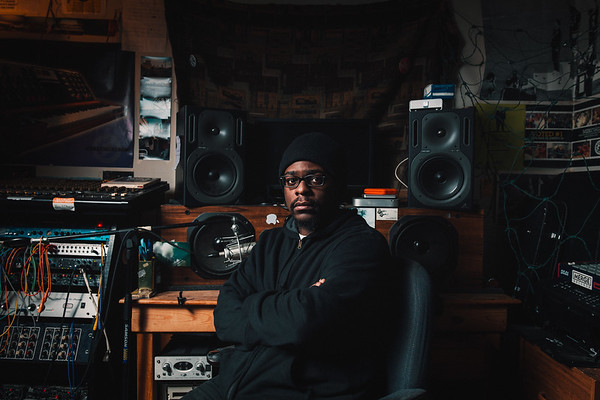Jan 13, 2026 2:09 PM
More Trump-Kennedy Center Cancellations
The fallout from the renaming of the John F. Kennedy Center for the Performing Arts to include President Donald…

In addition to producing, DJ Harrison plays keys and bass in Butcher Brown and on his solo projects.
(Photo: Joey Wharton)Every scene has a vibe, and in Richmond, Virginia, that includes community and connection.
“Richmond is a big small town. Everyone knows everyone,” said DJ Harrison, multi-instrumentalist, engineer and founding member of Butcher Brown, the five-piece Richmond band that opened for Kamasi Washington during his 2018 tour and collaborated with Nicholas Payton for his 2014 release Numbers.
In September, the groove-buoyed and genre-subversive outfit issued #KingButch (Concord Jazz), which followed up Camden Session, the band’s 2018 direct-to-disc release. The warmth that effervesces across both albums, and each of Harrison’s projects, reflects the human-to-human connection he’s pursued since he began experimenting with sound during FruityLoops “sample battles” in high school. Among melodious horn lines, backbone-slip grooves and the lyrical vision of Marcus “Tennishu” Tenney—the band’s trumpeter and saxophonist—Butcher Brown creates a sonic narrative between improvisation and pulse.
“You can’t really describe it,” Harrison said. “You feel it. Whether it’s with other people, without bandmates, with listeners, we’re all trying to establish that deeper connection.”
In June, Harrison collaborated with another Richmond rising star, singer and composer Kenneka Cook, whom he’s known for years from the scene. He became one of several artists to remix a track from her 2018 release Moonchild. “DJ has always been one of my favorite RVA artists, whether he’s playing in bands, producing songs for his solo projects or for other artists,” said Cook. “When the remix idea was brewing, I wanted [him] to be part of it.”
Alone at Jellowstone, his home studio and the Butcher Brown “control center,” Harrison spoke over the phone about the lineage of the music and charting his own path through sound.
The following has been edited for length and clarity.
You have this fascination with physical media. How have those formats influenced your voice as a producer?
From a young age, I was interested in how to make records—how songs are written and how they’re recorded. I’ve always tried to figure out every detail down to the core of what’s happening. I grew up around physical media and thought that’s what music was: cassettes sound like this, vinyl sounds like this. I just figured creating that aesthetic is part of being a musician. Even working digitally, I still carry that aesthetic.
So, as many artists transcribed solos, you tried to transcribe sound?
Yeah, I’d ask my parents about these black circles, and they’d say, “This is an album; the people on the front are the band; [band members have] different roles,” and so on. Instrumentation, engineering, songwriting—I’ve always wanted to learn how to put records together.
Is that fascination why you’ve learned so many instruments in addition to learning production?
Totally. It’s wanting to figure out what it is about my favorite music that’s pulling me towards it—even down to the packaging. But now, since I’m older and I’ve done all the experimentation, I’m like, “Can I dissect, on a deeper level, how it’s all happening?”

Belá Fleck during an interview with Fredrika Whitfield on CNN.
Jan 13, 2026 2:09 PM
The fallout from the renaming of the John F. Kennedy Center for the Performing Arts to include President Donald…

Peplowski first came to prominence in legacy swing bands, including the final iteration of the Benny Goodman Orchestra, before beginning a solo career in the late 1980s.
Feb 3, 2026 12:10 AM
Ken Peplowski, a clarinetist and tenor saxophonist who straddled the worlds of traditional and modern jazz, died Feb. 2…

The success of Oregon’s first album, 1971’s Music Of Another Present Era, allowed Towner to establish a solo career.
Jan 19, 2026 5:02 PM
Ralph Towner, a guitarist and composer who blended multiple genres, including jazz — and throughout them all remained…

Rico’s Anti-Microbial Instrument Swab
Jan 19, 2026 2:48 PM
With this year’s NAMM Show right around the corner, we can look forward to plenty of new and innovative instruments…

Richie Beirach was particularly renowned for his approach to chromatic harmony, which he used to improvise reharmonizations of originals and standards.
Jan 27, 2026 11:19 AM
Richie Beirach, a pianist and composer who channeled a knowledge of modern classical music into his jazz practice,…